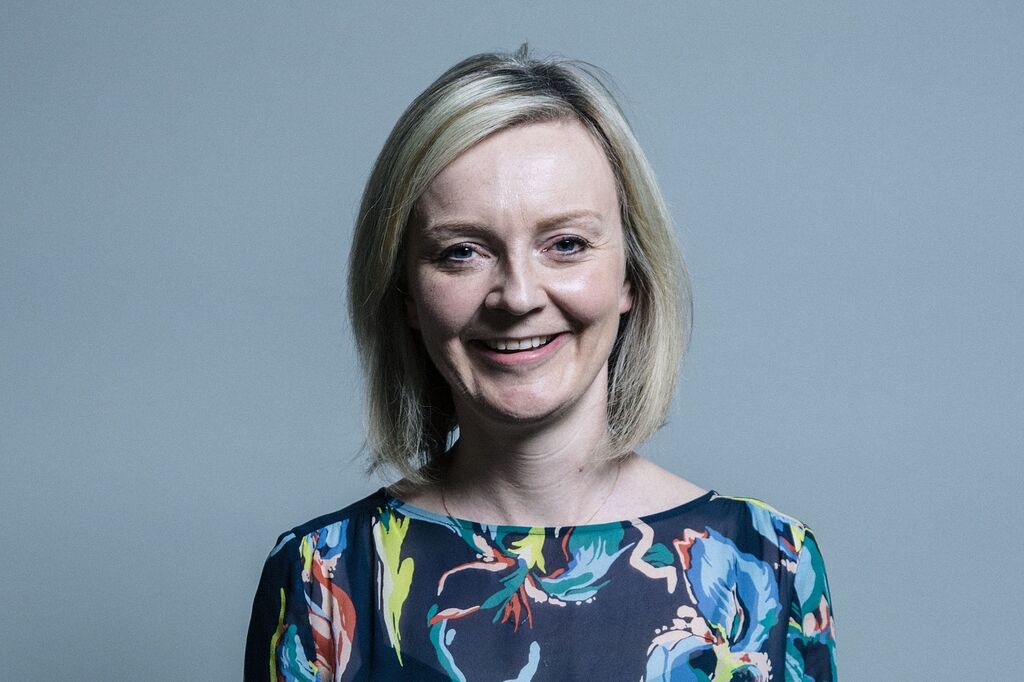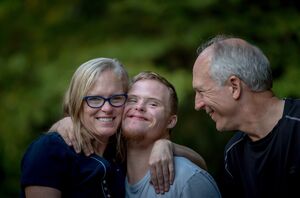Marriage and Family
Liz Truss is right on family tax reform
Press release: CARE has welcomed comments by Liz Truss on the need to reform Britain's tax rules, which place an "unfair" burden on families.
Yesterday, on a visit to Peterborough, Ms Truss, said one of her "top priorities as Prime Minister would be easing the tax burden on families".
"I want to make sure that our tax system works for them. We will review the taxation of families to ensure people aren't penalised", she said.
CARE campaigns for reform of the income tax system to ensure a fairer deal for families.

Tim Cairns, CARE's Senior Policy Officer, commented:
"We have been calling for tax reform that relieves the burden on families for many years and it is good to see this important topic feature in the leadership contest.
"In the cost-of-living crisis, it is households with children or other caring responsibilities who will be hit hardest. A reformed tax system can help the most vulnerable weather the storm.
"The current approach to taxation, which focuses on the individual, means that families are paying more in tax than households with no dependents. This is simply unjust.
"The next Prime Minister needs to consider a suite of measures to help Brits in today's challenging fiscal environment. A fairer deal for families must be part of their plan."
A recent CARE report, produced in partnership with fiscal policy experts Tax & the Family, argues that the current approach to taxation is inherently unfair. It states:
"The UK tax system does not treat families fairly. The amount of tax that they pay bears little relationship to how well off they are. Many families in poverty pay income tax. Some in the bottom half of the income distribution even pay higher rate tax and are liable for the HICBC. This problem, which has been ignored by successive Chancellors, is a serious one, and needs to be tackled.
"Latest data from the ONS indicates that there are 27.8 million households in the UK.16 Nearly 8 million of these households are families with dependent children: 5.26 million couples with one or two children, 0.94 million couples with three or more, and 1.67 million single parent families.
"Families with a single income (one-earner couple families and single parent families) are the most disadvantaged by the income tax system. Our figures also suggest that families with two equal incomes may have higher tax liabilities than households without dependents. This unfairness is due to the fact that UK income tax is based on the individual and has little regard for family responsibilities."
Calling for significant "structural reform" of the income tax system, the report adds:
"What is needed is a culture change so that the household is recognised as the basic unit of taxation, just as it is for other purposes. This will enable the unfairness and disadvantages for families with children considered earlier in this report to be tackled and the UK system brought more closely into line with those in most other developed countries.
"The necessary structural change should start with a consultation paper which would look at how best the household basis might be introduced. However, the conclusions would take time to put into effect. Meanwhile short and medium term changes would be needed to reduce the inequalities that result from present system."
International comparisons
Analysis shows that the UK is out-of-step with other Western nations in terms of the tax burden it places on families as a proportion of income.
In the UK, a couple in a marriage or civil partnership with one income and two children earning the OECD average wage will surrender around 40% more than the comparable family in France, and nearly three times more than the comparable family in the US. The figures for a single mother with two children are similar.
ENDS
About CARE
Christian Action Research and Education (CARE) provides analysis of social policy from a Christian perspective.
About Tax & the Family
Tax & the Family consists of independent consultants Leonard Beighton, Don Draper, and Alistair Pearson.
Leonard Beighton spent 37 years in the Inland Revenue, ending in 1994 as Deputy Chairman of the Board. In 2011 he was made an Honorary Fellow of the Chartered Institute of Taxation.
Don Draper worked on tax policy in the Inland Revenue for over 20 years before moving to PricewaterhouseCoopers. In retirement he has taken a special interest in the taxation of the family.
Leonard and Don are trustees of Tax and the Family Charitable Trust. Alistair Pearson is a management consultant with a concern for fairness in public policy.
For more information or to request an interview, contact press@care.org.uk
Share
